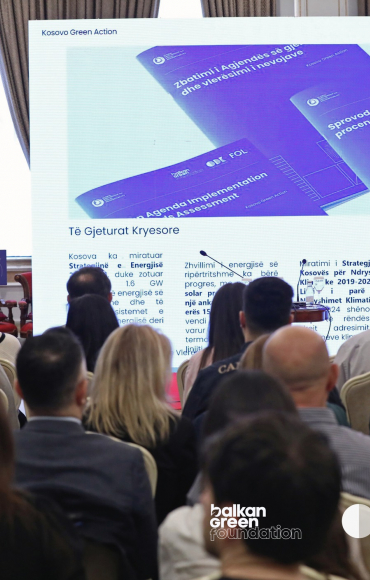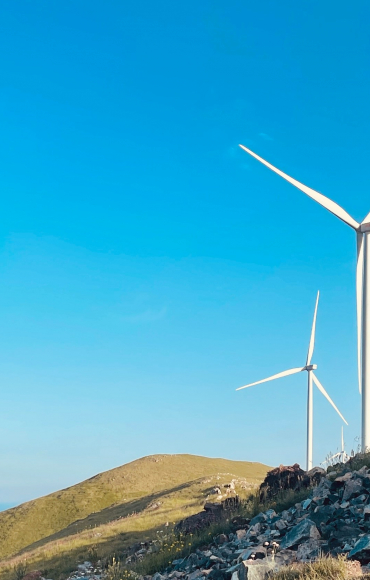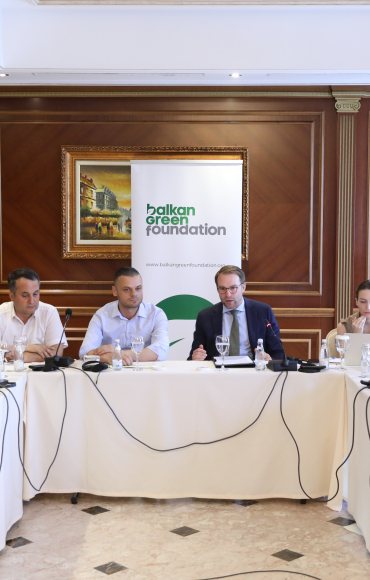22 May 2025
The Poison of Prishtina That Makes Every Breath a Struggle
A winter morning in Prishtina often begins under a heavy, grey sky, where the air feels thick and each breath reminds you of the invisible dangers that surround the city. The air is visibly polluted, the sky is gloomy, and movement around the city is minimal. It’s a terrifying reality that evokes one of history’s worst disasters, where hazardous airborne materials took thousands of lives and turned Chernobyl into a deadly wasteland.
But this isn’t Chernobyl—it’s Prishtina. A capital city in the heart of the Balkans, where, although not at such catastrophic levels, pollution has turned it into an unhealthy and hazardous place to live.
The World Air Quality Index (IQAir), which evaluates air quality worldwide, frequently ranks Prishtina among the most polluted cities during the winter season, sometimes surpassing even Delhi, India, and Dhaka, Bangladesh.
In January alone, 53% of the time, the air was classified as harmful by the Kosovo Hydrometeorological Institute, meaning that residents breathed more toxic air than was acceptable.
Meanwhile, data from the National Institute of Public Health (NIPH) for 2024 reveal the severe health consequences of air pollution in the capital. Nearly 2,000 hospitalizations were recorded due to respiratory infections in the past year alone. According to NIPH, lower respiratory tract infections (ARI) reached 990.17 cases per 100,000 inhabitants, marking a 4.1% increase compared to the same period in the previous year.
A World Bank report shows that Kosovo leads the Western Balkans in methane emissions, with the highest per capita emissions in the region, surpassing Serbia and other neighboring countries. This pollution contributes to the formation of harmful ozone, worsening air quality and increasing the risk of numerous diseases.
The Health Consequences of Polluted Air
Polluted air poses a serious threat to human health, negatively affecting the entire body. According to the Kosovo National Institute of Public Health (NIPH), the most at-risk groups include children, pregnant women, the elderly, and people with chronic diseases.
Air pollution in Prishtina increases the risk of several illnesses, including vision problems, respiratory diseases, difficulty breathing, persistent coughing, reduced lung function, asthma attacks, allergies, and even cancer.
A study by MCC-NIPH on the impact of air pollution on health found that in 2019, 1,127 people in Kosovo died prematurely due to exceeding the air quality limits set by WHO guidelines. Meanwhile, a World Bank report from last year revealed that air pollution was linked to 760 premature deaths per year.
For children, according to NIPH, polluted air can significantly impact brain development, leading to psychological issues and behavioral disorders in later childhood. Research suggests that air pollution exposure is associated with symptoms of Attention Deficit Hyperactivity Disorder (ADHD), anxiety, and depression.
According to UNICEF's 2023 report on climate change and children's health, one of the most dangerous air pollutants is fine particulate matter (PM2.5), which can penetrate deep into children's lungs and enter the bloodstream. Similarly, PM10 particles, which exceed recommended levels in Kosovo, expose children to numerous health risks. Since children's bodies are still developing and highly sensitive, exposure to polluted air can have long-term, harmful effects.
The elderly are also particularly vulnerable. According to NIPH, their weakened immune systems make them more susceptible to pollution-related diseases. A University of Chicago study found that premature deaths from air pollution have exceeded those caused by smoking, making air pollution one of the leading life-threatening risks.
Where Does Prishtina’s Air Pollution Come From?
The main cause of Prishtina’s dangerously high air pollution levels is its power plants, namely Kosova A and Kosova B. These coal-fired power plants burn lignite every day to generate electricity, with demand peaking in the winter months.
Both plants burn low-quality lignite with high sulfur and ash content, releasing sulfur oxides, nitrogen oxides, carbon monoxide, and dangerous PM2.5 and PM10 particles. These pollutants pose severe health risks.
To produce just one kilowatt of electricity, Kosovo’s coal-fired plants emit around 900 grams of carbon dioxide (CO₂). Over the years, these power plants have produced an average of 900,000 megawatt-hours (MWh) of electricity annually, emitting over 800,000 tons of CO₂.
These 65-year-old and 45-year-old power plants struggle with outdated technology, particularly inefficient filters. Since 2019, a €76 million project to install new electrofilters at Kosova B has been continuously delayed.
Kosovo’s Energy Strategy outlines plans to expand renewable energy sources and phase out old power plants. These goals align with the Green Agenda for the Western Balkans, which Kosovo has signed. According to the Kosovo Energy Strategy, renewable energy's share is expected to reach 35% by 2031, up from just 6.3% in 2021.
The second-largest source of air pollution in Kosovo is transportation, according to the Environmental Protection Agency. The country heavily relies on fuel-based vehicles, significantly outnumbering sustainable transport alternatives.
A report from the Ministry of Internal Affairs states that Kosovo has approximately 385,000 fuel-powered vehicles, while hybrid and electric cars make up an insignificantly small percentage. Public transportation also relies heavily on fossil fuels, further contributing to air pollution.
Kosovo could follow the example of regional countries by implementing tax incentives for electric vehicles, reducing customs duties, or eliminating certain registration fees. However, Kosovo’s current legislation makes it difficult for citizens to invest in newer, less-polluting vehicles due to high import taxes, which in some cases can equal half the cost of the car. As a result, many residents continue to use old, highly polluting vehicles.
Another major factor in winter air pollution is individual heating. Most households in Kosovo rely on burning wood, coal, and other fuels for heating. Even schools contribute to air pollution, with 90% of schools using coal and wood-burning heating systems. According to the Ministry of Education, 600 schools burn coal, 551 use wood, and 102 use diesel for heating.
What Can Be Done to Improve Air Quality?
According to Kosovo’s Statistical Agency, in 2019, Kosovo collected €287 million in environmental taxes, of which €23.7 million (8%) was allocated to environmental protection. This highlights an opportunity for increased investment in environmental and public health initiatives
Improving air quality in Prishtina requires coordinated action between local and central governments, says Dardan Abazi, a researcher at INDEP. One of the most effective ways to reduce air pollution is through renewable energy investments and cutting emissions.
“We need policies from both levels of government, starting with energy efficiency in production. For example, at Kosova B, the delayed filter project would significantly reduce air pollution. Moreover, revitalization projects planned by the government should prioritize cutting air pollution.”.
“The government should increase capital investments in municipalities to improve air quality. Additionally, central authorities should accelerate the expansion of district heating systems in urban areas to reduce the need for individual home heating solutions, which often aren’t environmentally friendly.” says Abazi.
The Municipality of Prishtina attributes winter air pollution to its geographical location, claiming that its valley-like position traps dust particles and gases. However, city officials state they are working on expanding cogeneration networks and improving transportation policies to reduce vehicle-related emissions.
Meanwhile, for over a month, the Ministry of Environment, Spatial Planning, and Infrastructure has failed to respond to inquiries about what measures they are taking to improve air quality.
With winter’s end, home heating systems shut down, and Prishtina no longer ranks among the world’s most polluted cities. But winter will return, and unless serious action is taken, Prishtina will once again become one of the champions of air pollution.
Author: Agron Canolli


